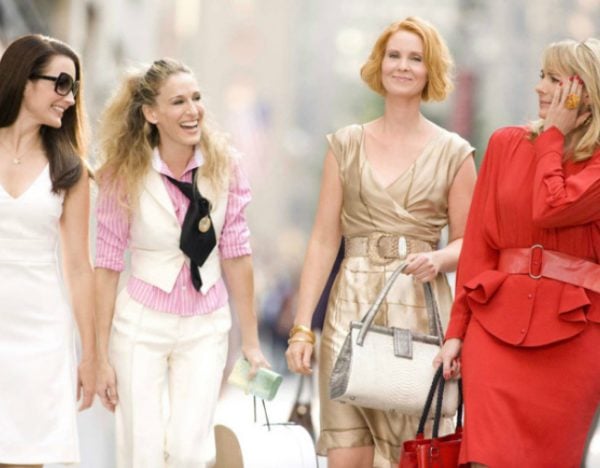It had been nine years since HBO aired the finale episode of Sex And The City when Emily Nussbaum wrote in The New Yorker about the failings of Carrie Bradshaw.
It was 2013, and retrospective analysis of the fictional nineties and noughties icon who was once considered transformative and fiercely feminist proved she was, often, the total opposite.
In the absence of Big’s love and approval Nussbaum observed Carrie “spun out, becoming anxious, obsessive, and, despite her charm, wildly self-centered—in her own words, ‘the frightening woman whose fear ate her sanity.’
“During six seasons, Carrie changed… She got more honest and more responsible; she became a saner girlfriend. But she also became scarred, prissier, strikingly gun-shy—and, finally, she panicked at the question of what it would mean to be an older single woman.”
This was, of course, written in the shadows of Sex And The City‘s second “mildly-to-completely terrible movie” (Vulture‘s words, not mine) set in Abu Dhabi. Memories of the nude tutu-wearing Carrie of season one had faded into oblivion. The new Carrie – the one who cheated on Aiden, who was totally inept at handling her finances because she kept buying Manolo Blahniks, and who was casually racist towards Middle Eastern women – was the only Carrie we could remember.































































































